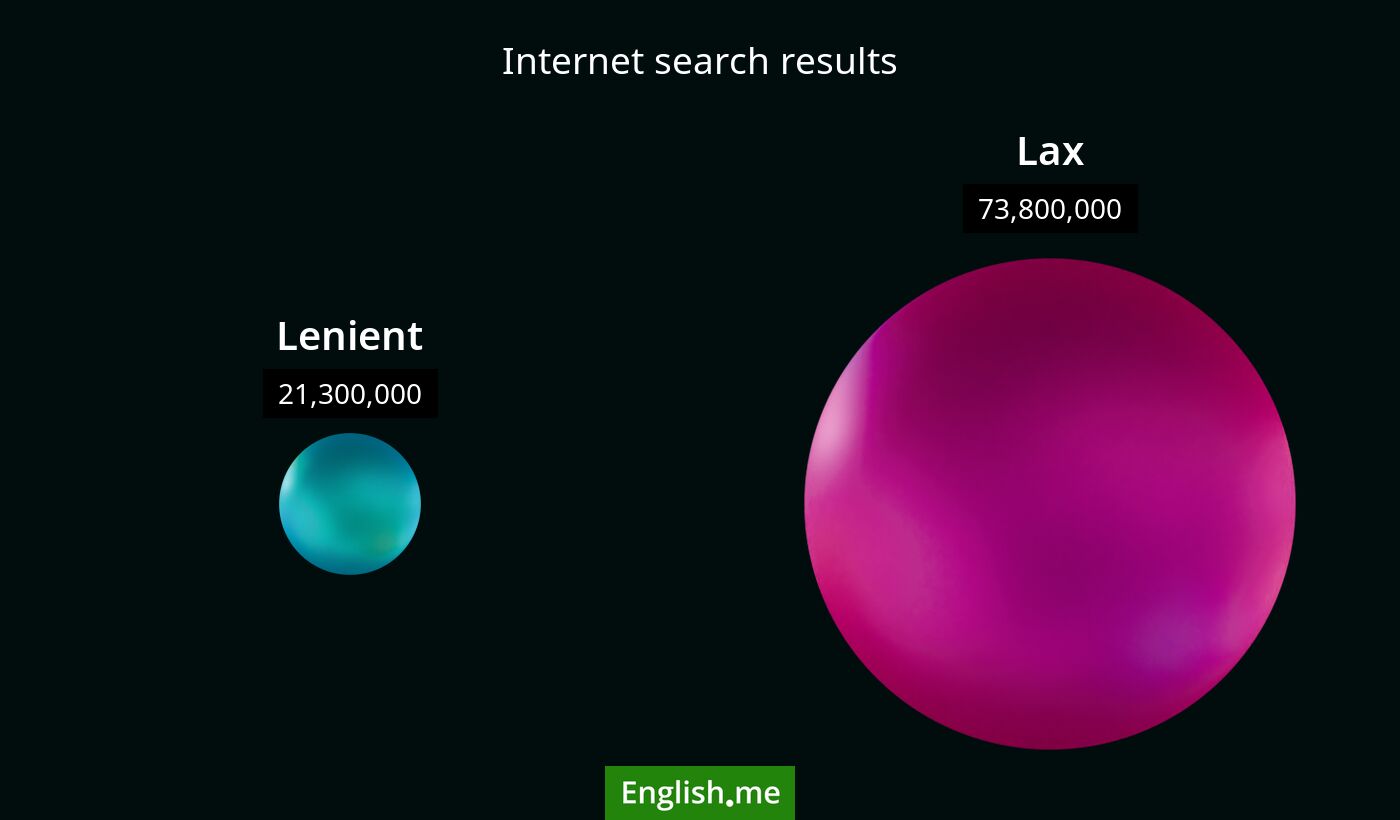"Lenient" vs. "lax": the subtle nuances of relaxed restraint
Reviewed and edited by  Lloyd Cooper 14/10/2024, 23:59
Lloyd Cooper 14/10/2024, 23:59
English.me team member

 What is similar?
What is similar?
Both "lenient" and "lax" describe a more relaxed or permissive approach or attitude compared to what is expected or considered standard or strict.
 What is different?
What is different?
While "lenient" generally implies a kind or compassionate flexibility, often in enforcing rules, "lax" suggests a lack of strictness that may lead to disorder or ineffectiveness, implying negligence or a lack of care.
 Which one is more common?
Which one is more common?

 Examples of usage
Examples of usage
Lenient- The teacher was lenient with the students, allowing them extra time to complete their assignments.
- Her parents were lenient, giving her freedom to make her own decisions.
- The judge gave a lenient sentence, considering the circumstances of the case.
- Security at the event was criticized for being too lax.
- His lax attitude towards work deadlines often got him into trouble.
- The company suffered from lax oversight, leading to several compliance issues.

 English
English español
español française
française italiano
italiano deutsche
deutsche 日本語
日本語 polski
polski česky
česky svenska
svenska Türkçe
Türkçe Nederlands
Nederlands